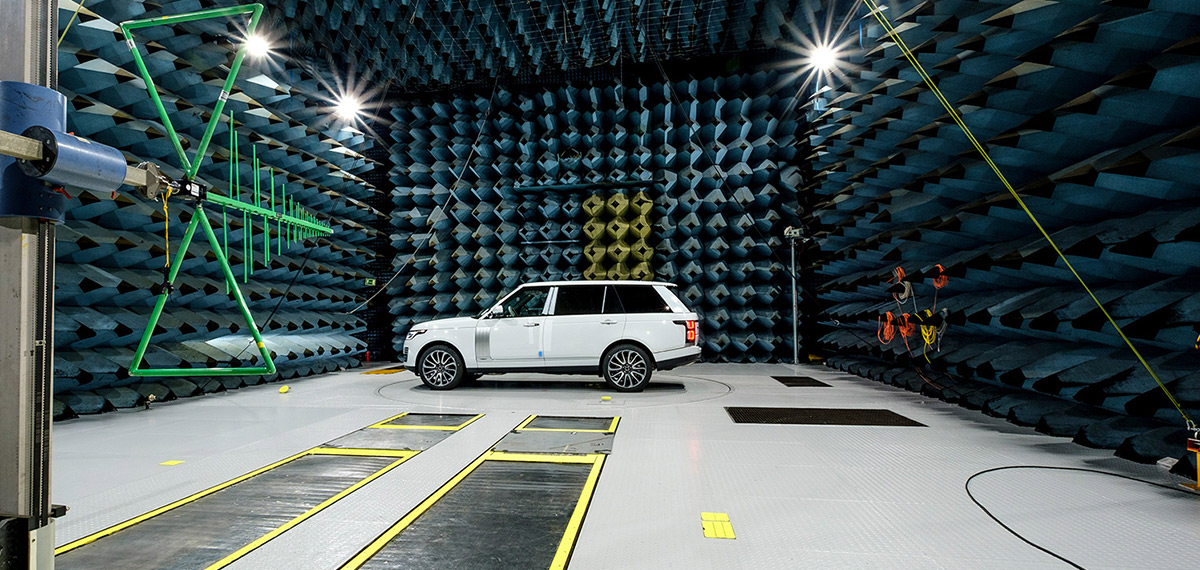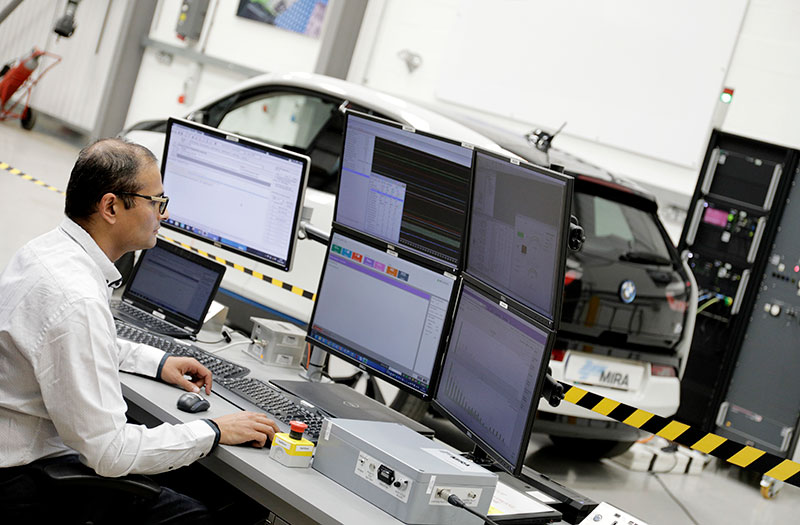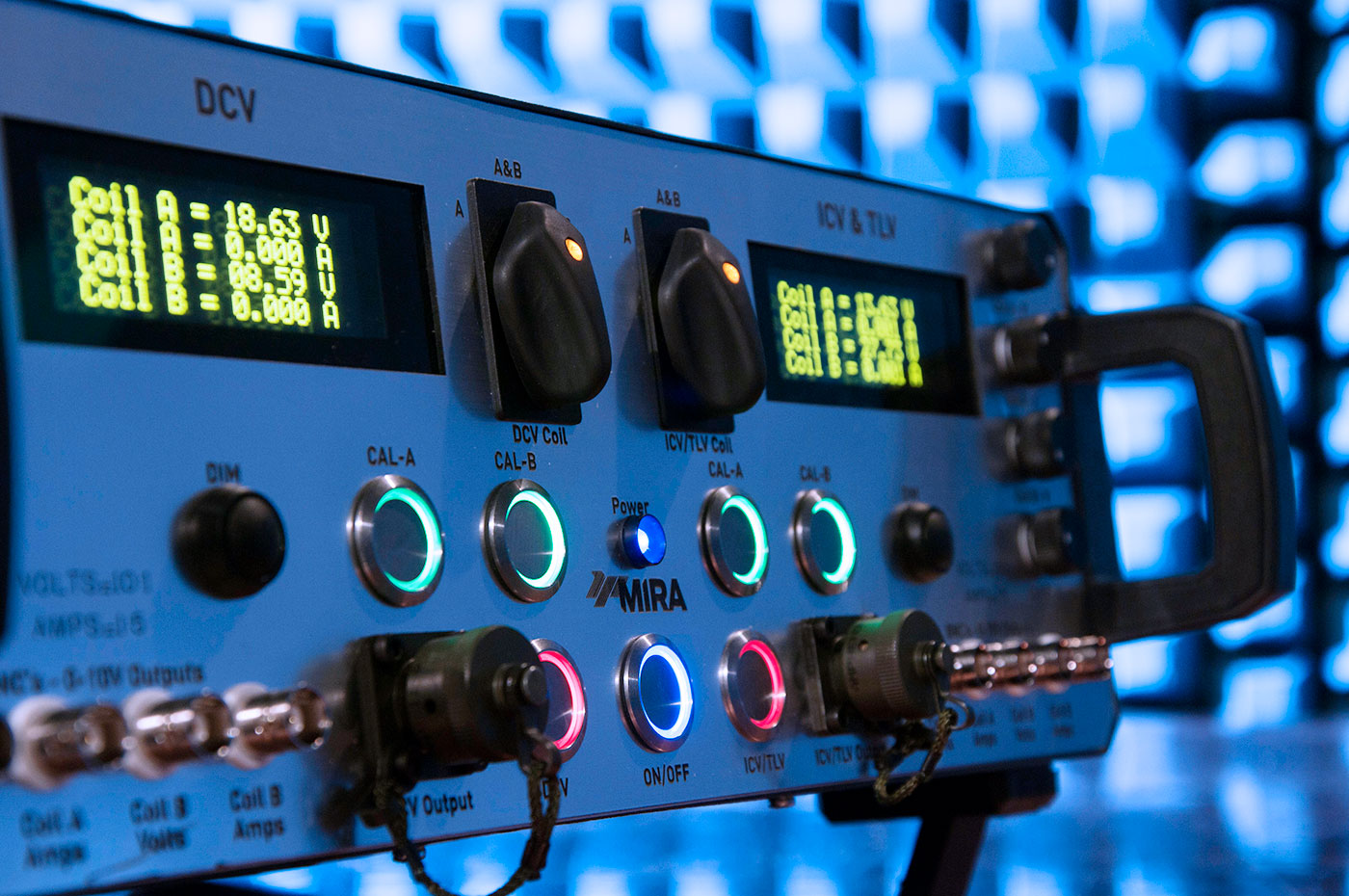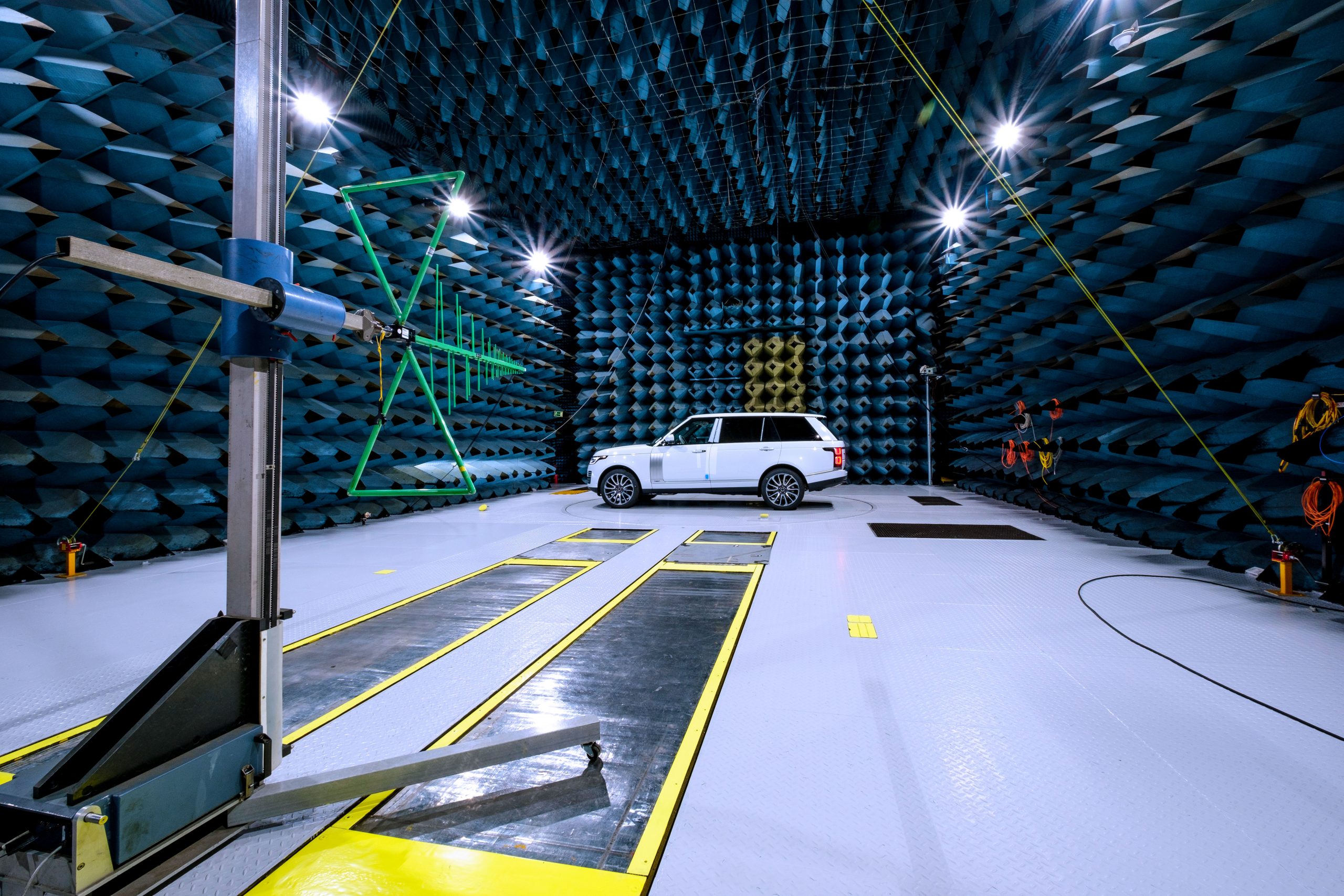EMC Testing
Electromagnetic Compatibility (EMC) testing for automotive vehicles is essential to ensure that electronic systems and components within vehicles can operate properly without causing or suffering from interference from electromagnetic sources.
These EMC tests help ensure that automotive vehicles are electromagnetically compatible with other devices, systems, and environments, thereby promoting safe and reliable operation. Compliance with EMC standards is crucial for automotive manufacturers to obtain certifications and approvals for their vehicles.

There are several main types of EMC testing that are commonly performed on automotive vehicles:
Radiated Emissions Testing
- This type of testing assesses the electromagnetic radiation emitted by a vehicle’s electronic components and systems. It measures the radiofrequency emissions to ensure that they do not exceed specified limits and interfere with other devices or systems.
Conducted Emissions Testing
- Conducted emissions testing evaluates the electromagnetic noise conducted along power and signal cables. It ensures that the electronic components and systems do not introduce excessive noise onto the vehicle’s power and signal lines.
Radiated Immunity Testing
- This testing assesses a vehicle’s ability to withstand electromagnetic fields from external sources without experiencing malfunctions or performance degradation. It measures the immunity of the vehicle’s electronics to external radiated fields.
Conducted Immunity Testing
- Conducted immunity testing evaluates a vehicle’s immunity to conducted disturbances on its power and signal cables. It assesses how well the vehicle’s electronic systems can operate correctly when subjected to disturbances such as electrical spikes or surges.
Electrostatic Discharge (ESD) Testing
- ESD testing evaluates a vehicle’s resistance to electrostatic discharges, which can occur when a person touches the vehicle’s surface. It ensures that the vehicle’s electronics can withstand such discharges without being damaged or malfunctioning.
Transient Emissions and Immunity Testing
- Transient emissions testing assesses the vehicle’s emissions of short-duration electromagnetic disturbances, such as voltage spikes. Transient immunity testing evaluates the vehicle’s ability to withstand such disturbances without adverse effects.
Voltage Variations and Supply Variations Testing
- This testing evaluates the vehicle’s ability to function correctly when subjected to variations in power supply voltage, such as those that can occur during engine starting or battery charging.
Voltage Ripple and Noise Testing
- This type of testing assesses the quality of the power supply by measuring the amount of voltage ripple and noise present. It ensures that the electronic systems within the vehicle can operate correctly under varying power conditions.
Harmonics and Flicker Testing
- Harmonics testing assesses the presence of harmonic currents and voltages in the vehicle’s electrical system, which can result from nonlinear loads. Flicker testing evaluates the impact of rapidly changing loads on the vehicle’s electrical systems.
Speak to an Expert
If you would like to discuss your testing requirements with one of our experts, please send us a message and we will contact you as soon as possible.


